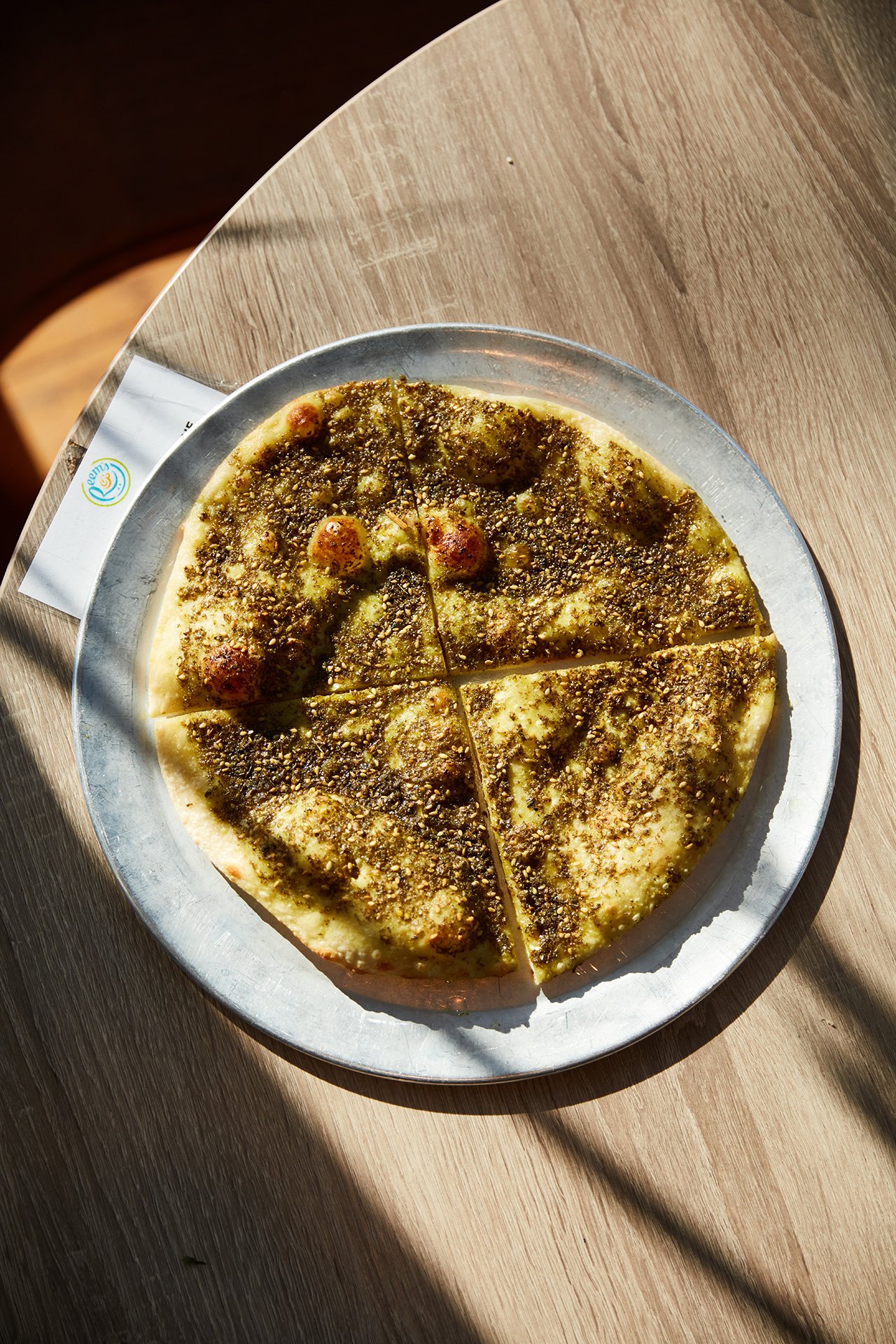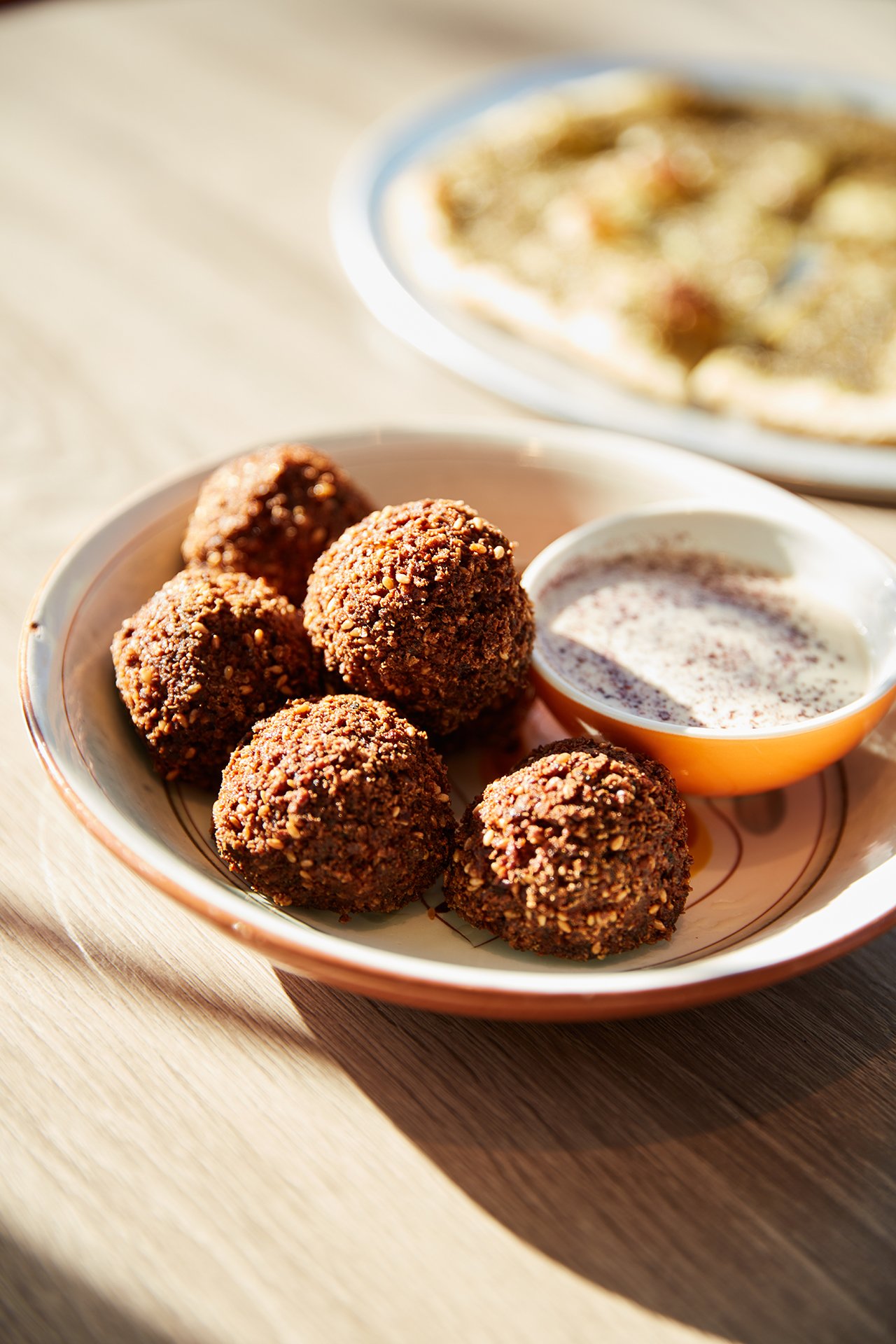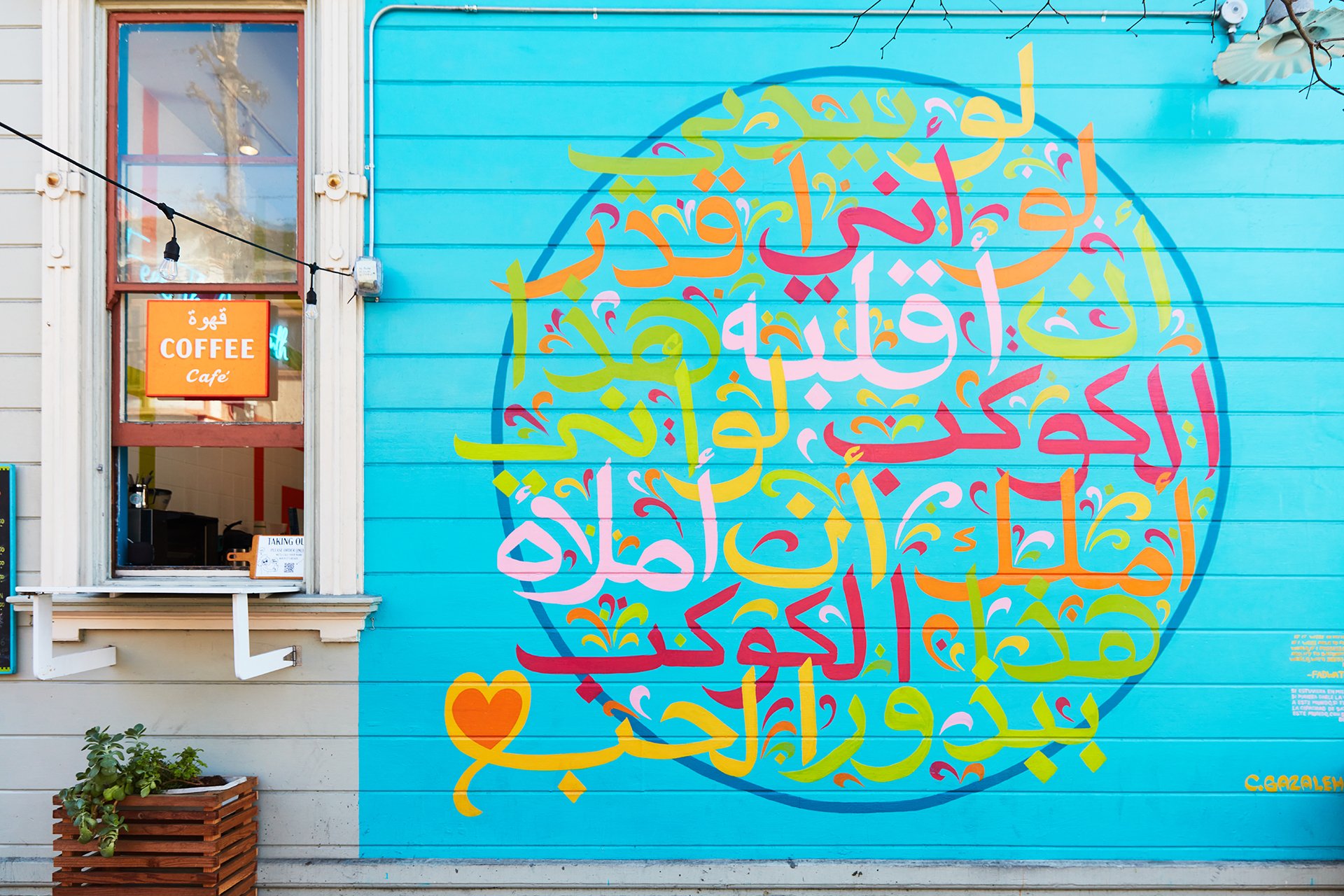Living in Authenticity
Reem Assil is on a mission to spread the love and joy of Arab culture through food—and she’s staying true to herself along the way.
For many people, Reem Assil is known as an ambassador of Arab food and culture through her Palestinian-Syrian lens. Her restaurant, Reem’s California, has become a model of what a good restaurant can be—especially in an industry that is still grappling with the pandemic two years later.
Some are aware of her storied career in activism that spanned a decade before her pivot to becoming a restaurateur. However, few folks may know about some of the formative experiences that shaped her life—and left an indelible mark for decades to come.
Finding her truth
Reem grew up in a suburb of Boston and often felt like an outsider in a city known for its long history of racial tension. “Even the school I went to was a remnant of the busing system of black from inner cities out to the suburbs, Reem says. “I was one of a handful of brown kids in my school.”
Reem always had a sense of the injustice surrounding her but was difficult to put into words. As a child of Syrian and Palestinian parents, that feeling of otherness permeated—and was only amplified—in her neighborhood.
A high school history trip to the South would give her the words she always needed–and change the trajectory of her life for decades to come. “I learned about the real civil rights movement in this country. It wasn't this romantic thing that people were writing in the history books,” Reem says. “I met former freedom fighters in Mississippi and my life kind of changed from that because I started remembering Gaza when I was 12. For the first time, I felt like I can relate.”
After that trip, Reem decided to dedicate her life to creating meaningful social change, and initially wanted to be a diplomat. However, she decided to move to California after college (“to get as far away from Boston,” Reem says), and quickly became involved in the activist scene there. This was a few years after September 11, and Islamophobia was at its zenith. “I started to meet a lot of people who are making some really good changes on the ground for people who are impacted by all these things, so I just kind of fell in love with it,” Reem says.
A trip to remember
A 2010 trip to Lebanon and Syria changed the course of her life in ways she didn’t anticipate. While traveling through both countries, the people, sights, and smells lingered with her: the warm embrace of strangers, a whiff of fragrant za’atar, and the smell of freshly baked bread wafting in the air from local bakeries. When Reem came back to Oakland, all she could think about was her trip. How could she recreate the flavors and depth of hospitality that she experienced for others?
Reem didn’t know, but it wasn’t going to stop her from finding out. “I wanted to express myself and I knew I wanted to create that experience, she says. “I didn't know what it takes to run a bakery or to have my own spot.”
With no prior bakery experience, she quickly got to work, enrolling in a local culinary program and cutting her chops at places like Arizmendi Bakery & Pizzeria and Grace Street Catering. “I talked constantly about this dream of Reem’s and a bakery,” she says. “I took entrepreneurship classes for women and every entrepreneurship class there was.” One of the organizations she applied for to assist with her dream was La Cocina, a non-profit organization that helps women of color become entrepreneurs and build successful food businesses.
“My entry into La Cocina catapulted me because they harness everything,” she says. “They really wrap around you.” La Cocina taught her mass production skills, which soon came in handy. “We started at one farmer's market and we grew to five farmer's markets within a year and a half,” Reem says. “I just kept saying yes to everything because people wanted the flatbread.”
Manifesting dreams into reality
That flatbread was her signature man’oushe, a popular Arab street food topped with fragrant za’atar. La Cocina encouraged her to open a full-fledged bakery and found a location in the Fruitvale Village neighborhood of Oakland. “La Cocina said ‘We think you should take this over,’ but I didn’t know how to do that,” Reem says. As luck would have it, there was an OpenTable contest for emerging restaurateurs looking to build their dream restaurant, and she won.
When Reem’s opened in 2015, the community welcomed her with open arms, but the reception wasn’t entirely positive. She commissioned a mural of Palestinian freedom fighter Rasmea Odeh; the backlash was swift among pro-Israel Jews. Some protests turned violent, and Reem had to get restraining orders for her staff—all while pregnant and dealing with multiple death threats of her own.
However, Reem didn’t take down the mural. “When you double down on yourself, you actually come out more successful in the end, even if it's scary. There were many days where I just wanted to crawl under a rock and just let it be all over,” Reem says. “I went back to that 12-year-old girl who wouldn't even say I was Palestinian, just to protect myself. But I told myself that when I started Reem’s, it would have to be the truest form of who I am.”
Reem also credits the local community, who rallied around her and her staff during the tumultuous time. Restaurants are unique ecosystems and serve as a marker of personal and communal identity—and for Reem’s, customers had come to embrace her restaurant as part of theirs. “Reem’s has such a force around it because it means so many things to so many people. It’s a movement space. It's a space for people to gather, to organize, to celebrate, to commiserate,” she says. “When that is under attack, you're attacking a whole way of being for people who believe in justice and want this sanctuary space. I really leaned on that and tried to decenter myself from all of it.”
The magic of Reem’s
The support from the backlash helped buoy Reem’s during an inflection point where most restaurants would not have survived. It’s because there’s something special and intangible about Reems that’s hard to put into words, but it’s worth trying: it could be that she provides a liveable wage in one of the most expensive areas of the country, or that her restaurant is a model for what the industry can (and more importantly, should be), where the current model relies on exploiting undocumented workers and fosters toxicity.
“When we choose to source local ingredients from farmers who make a liveable wage and give our own workers a liveable wage, inevitably we have to raise the prices of our food,” Reem says. “How do you do that without pricing out your own community? We're constantly grappling with these sort of questions of how Reem’s can be accountable to both its employees and the community it serves.”
Part of that is her man’oushe forward program, which provides meals for people in need. “The Bay area is so expensive to live in. For us, we've always had an implicit thing where people with disposable income subsidized the people who can’t afford it to be able to enjoy our food and services,” Reem says. “Now we're just more explicit about it. Again, we doubled down because we don't have to shy away from what we believe in.”
Reem also launched a program called Soumoud, which translates to steadfastness in Arabic. Soumoud is Reem’s way of extending her legacy by passing down her ownership to her employees. The multilingual 15-month apprenticeship program had 12 employees, with workshops focusing on collective culture and democratic governance. “It’s a huge transition. This is the new class of founders that will carry Reem’s forward for the long run,” she says. “It's something that really means so much to me. I wanted to leave a legacy for Reem’s and it needs to live beyond me.”
And while Reem doesn’t claim to know all the answers, she’s created a special culture at her restaurant that’s been widely praised. “I have a very strong personality and people are inspired by me, but so much of what happens at Reem’s is not about anything I do. It's just the culture that we created of people feeling like they have agency—it's very participatory,” Reem says. “It's a culture of collaboration rather than competition. To make it work, you have to do a lot of pivoting and you can't be stuck in your ways.”
For the culture
With a new cookbook, Arabiyya, coming out next month. Reem continues to spread the values of Arab culture. “I want people to experience the joy that Arab culture has brought me over this last 10 years,” Reem says. “Arab culture is about joy. It’s this beautiful culture of generosity and resilience and hospitality, which is expressed mostly through food.”
As Reem’s California continues to be an example of the richness of Arab culture, Reem wants others to know that the culture isn’t a monolith. “Arab culture and cuisine are so many different things,” she says. “From country to country, town to town, diaspora to diaspora, we're not all the same and all have very unique experiences—and that's something to be celebrated too.”







